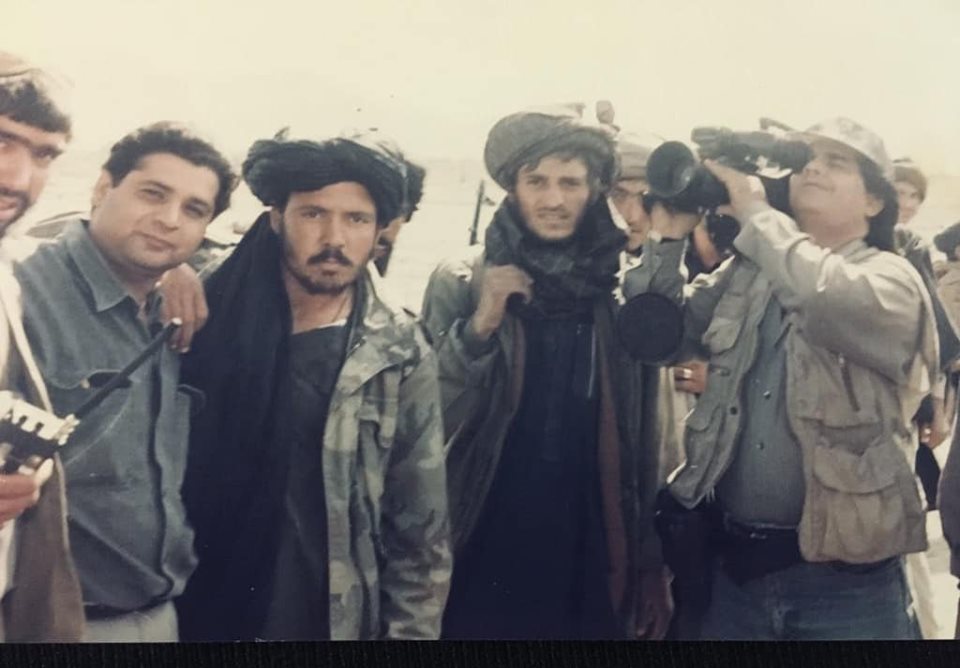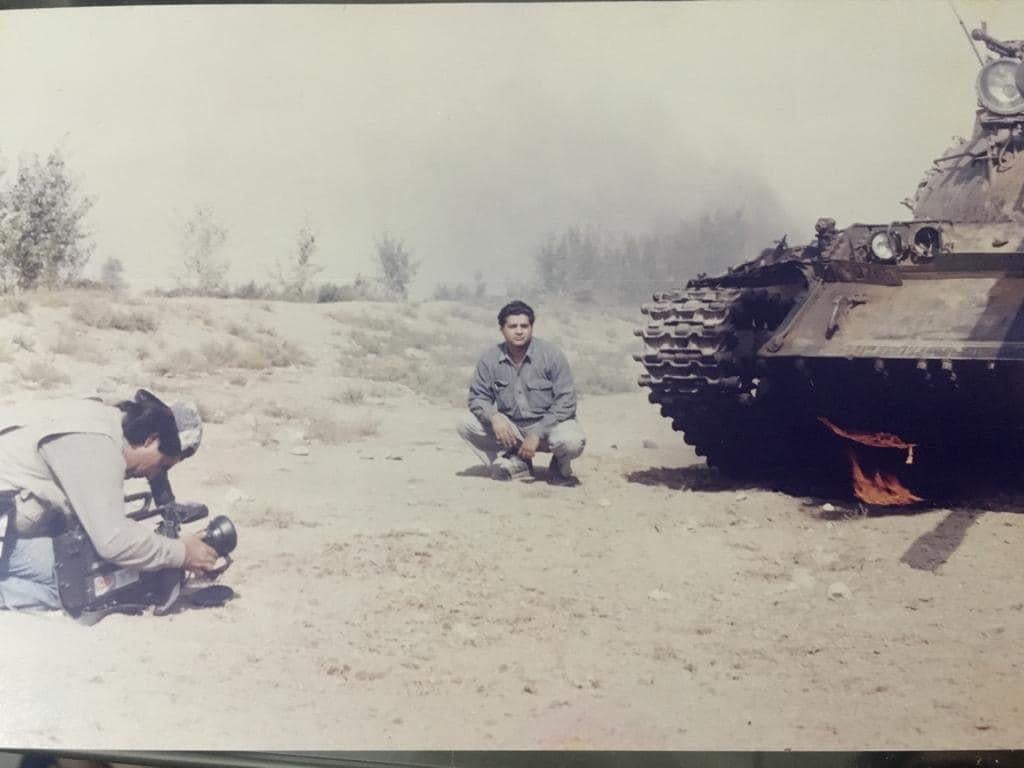By Agha Iqrar Haroon
Many of my friends during the last 15 days after the Fall of Kabul had asked me currents and undercurrents, dynamics, and differences between the Afghan Taliban and Tehrik-e-Taliban Pakistan (TTP).
Most of us do not understand sectarian, social, ethnic, and command relationships, as well as similarities and differences between the two. Though this subject is quite sensitive and complexed, I will try to share my memories and observations of the last 25 years when I first entered Afghanistan as a journalist to report the Rise of the Taliban, then the Fall of the Taliban, and now the Fall of Kabul.
Without going into the details of Fall of Mujahideen, the Rise of the Taliban, and so on so forth, let me mention that only one major group of Mujahedeen’s joined hands with the rising Taliban and that was the Haqqani group although the rise of the Taliban was the result of their armed resistance against Mujahideen, and the civil war that erupted after the former Soviet Union passed out Friendship Bridge. The Haqqani group joined the Taliban when they had already captured Kabul in 1996. Except for the Haqqani group, the Taliban swept away all former Mujahedeen groups.

Taliban of the 1996-2001 era were not pro-Jihadi rather they rose as a resistance movement against civil war, lawlessness, and warlords, and they never talked about Global Jihad.
Their only demand was to establish an Islamic government under the guidance of the Holy Koran and Afghan-led rule. Since a majority of the Taliban were students of religious schools of Deoband and the Wahabi School of Thought, and these religious schools had been funded by Wahabis from Middle Eastern Countries, therefore, they had the same viewpoint for Shias that powerful and rich Middle Eastern Countries have.
The Taliban alliance with Arab Jihadis paved the way for Arab funding and support, and Afghanistan under the Taliban rule became the hub of all groups that had been directly or indirectly involved in Shia killing. Anti-Shia groups like Akram Lahori and Malik Ishaq used to murder Shias in Pakistan and used to send their soldiers to Afghanistan where they had safe-havens. Anti-Shia alliances like Lashkar-e-Jhangvi and others grouped with the Taliban after 1998 and then dynamics of Taliban rule altogether changed. With this development, the Taliban whose only agenda was to establish Islamic rule in Afghanistan and do the cleansing of the Country from crimes of warlords became a group harboring criminals involved in sectarian killings and sectarian divide. The Wahabi-Shia proxy war went on in Pakistan with a safe passage to Afghanistan and Iran and this proxy war cost very heavily to inter-sectarian harmony of Pakistan. The 90s was the era that wrote a new history of barbarism with the blood of people due to this proxy war.
The third factor that was included in Taliban rule was the adventurism of Arabs, Uzbeks, Tajiks, Uyghurs, and Chechens Jihadi. Now the rule of the Taliban was seen as a rule of a group who believed in global Jihad (that was tagged as global terrorism by the western world).
Now Afghanistan became a land of pro-Wahabi, and anti-Shia force. I remember that the Taliban used to call northern alliance Shias infidels instead of enemies. They did not even bury dead bodies of killed soldiers of the northern alliance calling them infidels. So the war of Taliban that was started as an anti-civil war movement soon became anti-Shia, anti-civil war, and pro-Wahabi movement and the world started seeing it also as a Global Jihad launch pad.
Although some of the Taliban smelled soon that Arabs and other foreign Jihadis had their own agendas and Al-Qaeda that was established by Arabs had global agenda but the leadership of the Taliban did not take any action against them and let them use the Afghan soil for their own agendas. Jihadism was exported from Afghanistan under Taliban rule as far as China, Uzbekistan, Tajikistan, Syria, and even to Europe. Taliban had to pay for this phenomenon and a series of events took place that resulted in the US invasion of Afghanistan in October 2001.
Changing political sides in Afghanistan is very simple rather a norm so replacing Turban of Mujahedeen with Turbans of Taliban, I saw in 1996 onward. Then I saw Turbans used by the Taliban were thrown away to join US-allied forces in 2002 onward. Now I have again seen placing Turbans again on Afghan heads in the first 15 days of the Fall of Kabul.
There are many questions about the rising, fall, and re-emergence of the Taliban, and the foremost question is who are Afghan Taliban and do they differ from the Pakistani Taliban (TTP)?
Practically, I consider TTP as an off-shot of Al-Qaeda, not of the Afghan Taliban Movement.
Al-Qaeda emerged from the Maktab al Khidmat, the services bureau that Abdullah Yusuf Azam set up in the early 1980s to facilitate young Arabs from the Middle East to fight against the Soviets in Afghanistan through Pakistan, having the base camp in University Town Peshawar. Azam was assassinated in University Town Peshawar in 1989 and was replaced by Osama Bin Laden who transformed the organization into Al-Qaeda. According to available information and my experience of covering these events and areas in the 90s and then in early 2000, the TTP was initially funded by Al-Qaeda when Sheikh Essa decided to establish the erstwhile FATA as his strategic backyard. Dollars buy everything so soon religious scholars and students of former FATA replaced traditional Maliks because huge foreign funding, fleets of 4X4, and latest weapons were enough to subjugate Maliks who were also rich but not enough rich like Arabs. Nek Muhammad and Baitullah Mehsud were given money and weapons, and the TTP was formed without announcement. Arabs also funded people like Tahir Yaldochiv and Jumma Naghmani, and the Islamic Movement of Uzbekistan came on the surface.

With the support of sermons and fatwas of Arabs and Uzbeks, Baitullah Mehsud launched his war against Pakistan Army, calling it a part of an evil nexus of infidels. This is the same time when the Indian intelligence agency RAW entered the scene. Since the Taliban were at run and Pakistan was a part of the War on Terror; therefore, the Taliban had no control over developments that had been happening in Pakistan’s former tribal areas and India took maximum benefit of this situation. Some official circles claimed that late Mullah Umar sent a message through Maulana Dadullah, his envoy, to all factions including Baitullah Mehsud in North and South Waziristan that they were to abandon all other activities and join forces with the Taliban in Afghanistan. According to official circles, Mullah Omar said to the TTP to “Immediately stop attacks on Pakistani security forces”. However, the TTP leadership did not give any importance to such messages because the Taliban were at a run and had no influence over them. The credibility of such a message is hard to test because such claims come from only those who had been aligned with the Musharraf era.
Yes, there is no doubt that Uzbek-born Tahir led 30,000 plus fighters including Chechens, Uzbeks, and Arabs, and handed this army of evils to the Mehsud tribe. This was the time Pakistan was free for all and every Islamist was considered a “Brother”.
Baitullah Mehsud was installed as the first TTP Chief. When the TTP was rooted out by Pakistan Army from former tribal areas, they regrouped inside Afghanistan mostly in Kunar province with the active support of NDS and RAW. Asadabad city of Afghanistan had been a hub of TTP activates.
According to some intelligence reports, the TTP with the funding of RAW got two faces—- and the new face was Islamic State, known as IS Khorasan Province (ISKP), which is now at war with the Afghan Taliban. According to intel reports, the first contingent of militants for the ISKP was formed by the TTP leader Hafiz Saeed Khan on July 14, 2012.
The following eight armed groups of TTP joined the ISKP.
- Khalid Mansoor, TTP commander in Hangu;
- Shahidullah Shahid, spokesman of TTP;
- Mufti Hassan Swati, TTP commander in Peshawar;
- Gul Zaman Fateh, TTP commander in Khyber;
- Hafiz Dawlat Khan, TTP commander in Kurram;
- Hafiz Saeed Khan, TTP commander in Orakzai;
- Abdul Bahar Mehsud, TTP commander in Waziristan;
- Abu Bakr, commander of the TTP in Bajaur.
These sub-factions of TTP are assisting the ISKP in the war against the Afghan Taliban.
One should understand the aforesaid facts while finding what is the difference between the TTP and the Afghan Taliban. These are historic facts and can be testified with foreign and national intelligence reports. One should also not forget the TTP’s alliance with the former Lashkar-e-Jhangvi and its sleeper cells all over Pakistan. The forthcoming time is sensitive for this region because too many foreign intelligence agencies would accelerate their operations to destabilize the situation in Afghanistan and the trickledown effect would have on all neighboring countries.
Today’s Taliban have learned a lot from history and they are protecting Shias from ISIS, ensuring the world that no one would be allowed to use Afghanistan against anybody and they had faced the brunt and paid the cost of what had gone wrong in the first three years of their first rule. Does sanity prevail now? keep your fingers cross.
Disclaimer
The views and opinions expressed in this article/Opinion/Comment are those of the author and do not necessarily reflect the official policy or position of the DND Thought Center and Dispatch News Desk (DND). Assumptions made within the analysis are not reflective of the position of the DND Thought Center and Dispatch News Desk News Agency.
